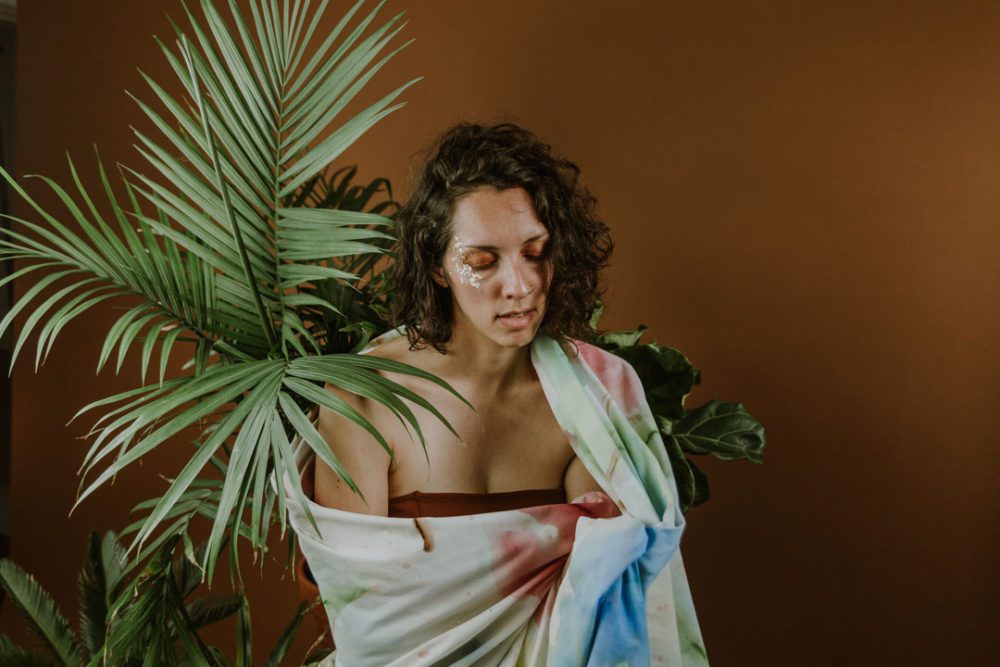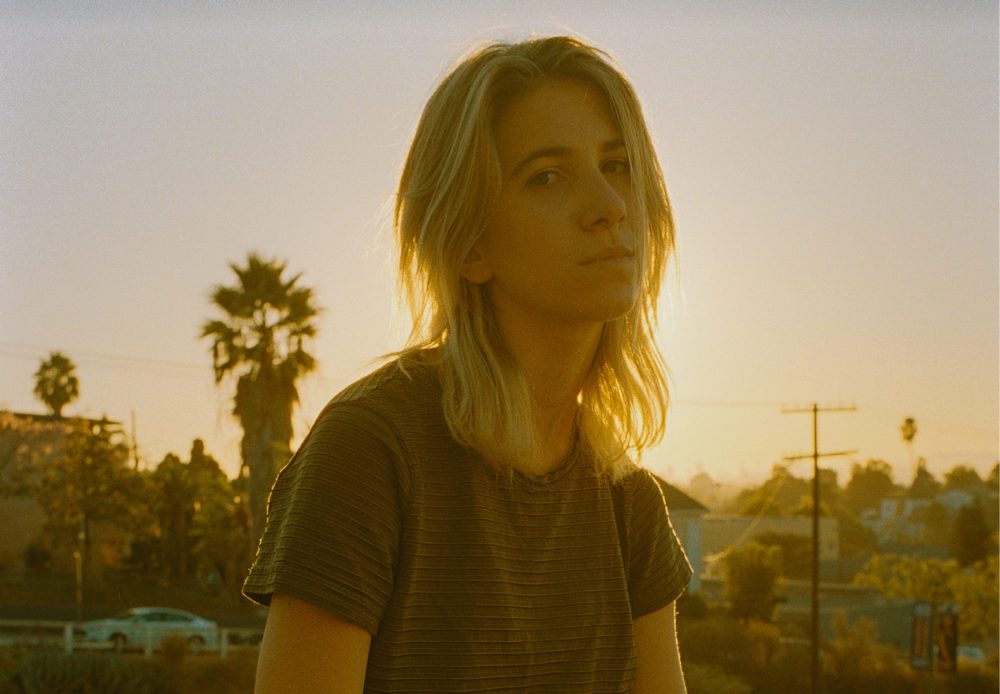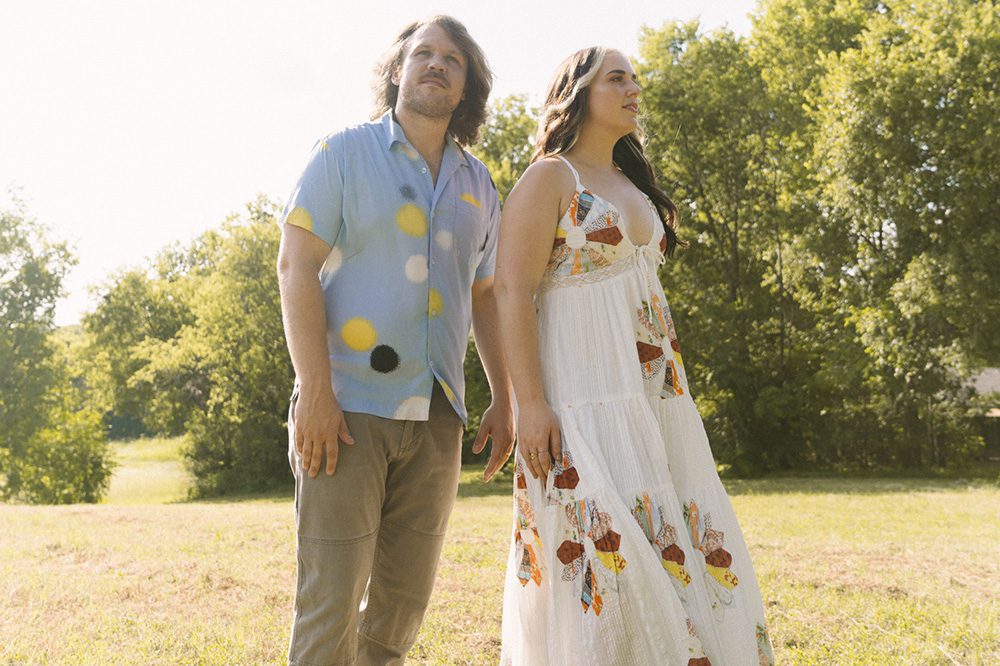

When asked what inspired her latest single “Shame,” Jess Nolan responds, “I keep coming back to this idea that shame is the tool of the oppressor.” She’s referencing ideology from author and podcast host Brene Brown, and though her song (and its video, premiering today on Audiofemme) comes from a place of personal contemplation, her aim is to liberate anyone who can relate. “Shame is used to oppress people, and it has been historically for so long, and when we use it against ourselves, we hurt ourselves and we hurt other people through that too.”
The indie pop singer-songwriter – originally from New Jersey, now based in Nashville – has crafted a lyrically rich anthem of freedom where shame takes on the form of a woman who arrives in her darkest hour, extinguishing her inner confidence. The songstress uses her lyrics to speak directly in defiance of the disparaging voices in her head, knowing that freedom is within her grasp.
“I live with shame for simply walking around, but I still believe in freedom, I trust that freedom is on it’s way,” she sings vulnerably over a simple, yet haunting melody of gently strummed guitar, piano and echoing strings. It’s this sense of freedom that
In an organic video comprised of Polaroid footage, Nolan and director Emerson Kyle juxtapose a sense of paralysis (limbs spilling over a piano bench, Nolan sprawled on black and white tile) with intention (tending to plants, painting watercolor blossoms), culminating in a stunning drone shot of Nolan’s graceful backstroke through murky water. “I wanted to show the progression of freeing myself through the video,” Nolan explains. “I wanted to encapsulate that feeling of being paralyzed or stuck or frozen, and as the video progresses, you see that I move outside. Emerson had this idea of getting that shot of me swimming and that being the freeing moment, freeing myself in the water and in nature.”
As a woman who has been in the music industry since the age of 12, the now 27-year-old describes how shame manifested in the stigma of feeling like she wasn’t “enough,” constantly striving for unattainable perfection. But after experiencing a bought of writers block, she had a breakthrough while writing “Shame” at the piano in her Nashville home.
“The song was the turning point for me being like I’m going to free myself from anything that’s holding me back, whether that’s outside of me or the voice in my own head that will stop me from trying things just because I want it to be perfect instead of just jumping and going for it,” she professes.
This applies not only to making music, but also to Nolan’s burgeoning role as an activist. “I’m learning, through the activism that I’ve been doing this year, it’s better to show up imperfect than to not show up at all,” she continues. “Striving for constant perfection in our personal lives and in music can really be a detriment and can hold us back from showing up authentically. That was a hurdle that I had to get over and I’m so glad that I’m continuing to do that work and not allowing that fear of being imperfect stop me from showing up.”
One of the song’s most powerful moments comes at its end, as Nolan gently, but confidently chants “freedom” while five female artists (Jasmine Mullen, Georgia English, Hadley Kennary, Rochelle Feldkamp and Becca Richardson) recite lines from her poetry. The words and unity reflect Nolan’s contemplative journey while creating her full-length debut album From Blue to Gold, released in August. While the project’s first four numbers are love songs, “Shame” is strategically placed as the sixth song, marking a more introspective space of self-examination. Nolan cites “Shame” as the north star of the album, symbolizing her journey from darkness to light as she finally finds the freedom she’d been searching for – a gift she hopes listeners gain as well.
“The song is dark in the beginning and it shifts to this hopeful thing and that’s the record in itself. There’s that turn of ‘there’s hope here,’ and the hope is in connecting with each other,” she expresses. “I hope that the message resonates with [listeners] enough to free themselves from anything holding them back, that it would inspire people of all genders and races to not let those fears of other people and their thoughts about you stop you from living out your deepest desires and dreams for yourself and to not let that voice in your head stop you. We have to speak kindness to ourselves if we want to be better people in the world and I think it starts with truly accepting yourself and allowing yourself to be free.”
Follow Jess Nolan on Facebook, Instagram and Twitter for ongoing updates.




